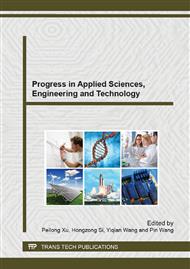p.4433
p.4437
p.4443
p.4447
p.4452
p.4457
p.4461
p.4465
p.4469
An Empirical Study of the Use of Learning Strategies in the Web-Assisted Autonomous Learning Environment
Abstract:
With College English teaching reform unceasingly moving forward, the network language learning mode requires that students should have stronger autonomous learning ability. The use of learning strategies tends to determine the effects of the autonomous language learning in the network autonomous learning environment. The empirical study in this paper aims to explore the effective and efficient use of learning strategies in the network autonomous learning environment through a questionnaire. The results of the survey show that students’ ineffective use of learning strategies has undermined the effect of their network mode of learning. It is suggested that teachers should consciously strengthen teaching and training students how to use learning strategies in the network autonomous learning environment.
Info:
Periodical:
Pages:
4452-4456
Citation:
Online since:
May 2014
Authors:
Keywords:
Price:
Сopyright:
© 2014 Trans Tech Publications Ltd. All Rights Reserved
Share:
Citation:


